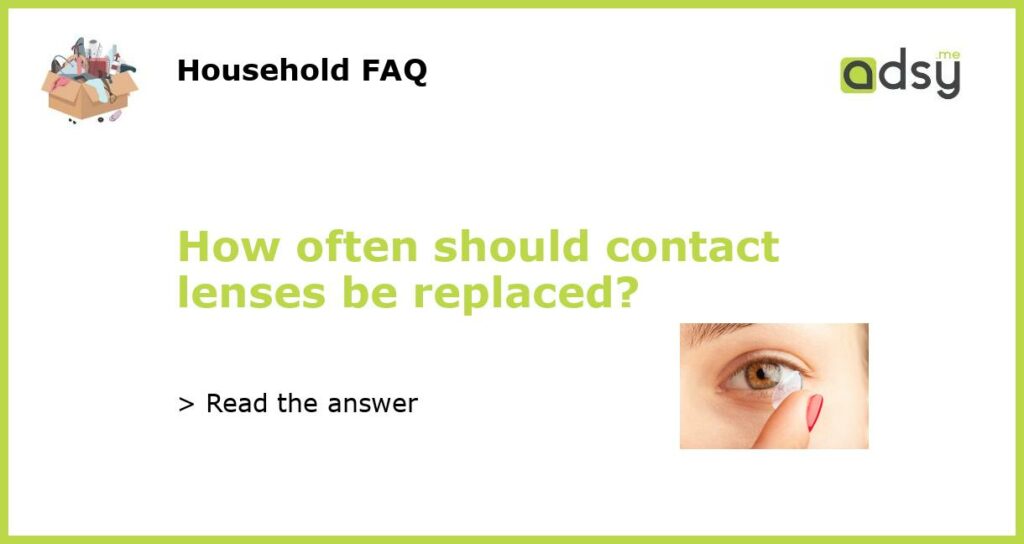Are You Replacing Your Contact Lenses Often Enough?
Contact lenses have become a popular alternative to eyeglasses for many people. They offer convenience, comfort, and better vision for those with refractive errors. However, to ensure optimal eye health and clear vision, it is crucial to replace contact lenses regularly. But how often should contact lenses be replaced? Let’s delve into the details.
The Importance of Replacing Contact Lenses
Before we discuss the replacement frequency, let’s understand why it is necessary to replace contact lenses in the first place. Over time, contact lenses accumulate deposits of proteins, lipids, and other substances from your tears. These deposits can lead to several eye problems, including dryness, discomfort, redness, and even infections.
Moreover, as contact lenses age, their material deteriorates, making them less breathable, less comfortable, and more prone to causing irritation. Wearing old or damaged contact lenses can also increase the risk of corneal ulcers or other serious eye conditions, which can potentially lead to vision loss if left untreated.
Factors that Affect Replacement Frequency
The replacement frequency of contact lenses can vary depending on several factors. These include the type of contact lenses you wear, your eye health, lifestyle, and the recommendations of your eye care professional.
There are generally two types of contact lenses: daily disposable lenses, and reusable lenses that need to be replaced on a monthly, bi-weekly, or quarterly basis. Daily disposables are designed to be worn once and then discarded. They eliminate the need for cleaning and storing solutions, making them a convenient and hygienic choice. On the other hand, reusable lenses require regular cleaning and disinfection.
Replacements for Different Lens Types
Daily disposable contact lenses are considered the healthiest option for the eyes. Since they are only worn once and then thrown away, there is no time for significant protein or lipid deposits to build up on the surface of the lens. They also provide better oxygen permeability, reducing the risk of corneal hypoxia (oxygen deprivation in the cornea). As a result, most eye care professionals recommend replacing daily disposable lenses every day or as directed by the manufacturer.
For reusable lenses, the replacement frequency can vary depending on the lens type and the recommendations of your eye care professional. Monthly contact lenses are typically replaced every month, while bi-weekly lenses are replaced every two weeks. Certain contact lenses, such as extended wear lenses, are designed to be worn continuously for a longer duration, usually around seven days, before being replaced.
Consult Your Eye Care Professional
While general guidelines exist for the replacement of contact lenses, it is important to remember that everyone’s eyes are unique, and the recommendations may vary. To determine the appropriate replacement frequency for your contact lenses, it is best to consult your eye care professional.
During regular eye exams, your eye care professional will evaluate the condition of your eyes and your contact lenses. They will also take into consideration your individual needs, lifestyle, and any specific eye conditions you may have. Based on this assessment, they will provide personalized recommendations on how often you should replace your contact lenses to maintain good eye health.
Prioritize Eye Health with Regular Replacements
Regular contact lens replacement is essential for maintaining good eye health and clear vision. While guidelines exist for the replacement frequency of different types of contact lenses, it is crucial to consult your eye care professional for personalized recommendations. By following their advice and replacing your contact lenses as needed, you can minimize the risk of eye infections, discomfort, and other complications. Prioritize eye health by staying vigilant about contact lens replacement. Your eyes will thank you.






